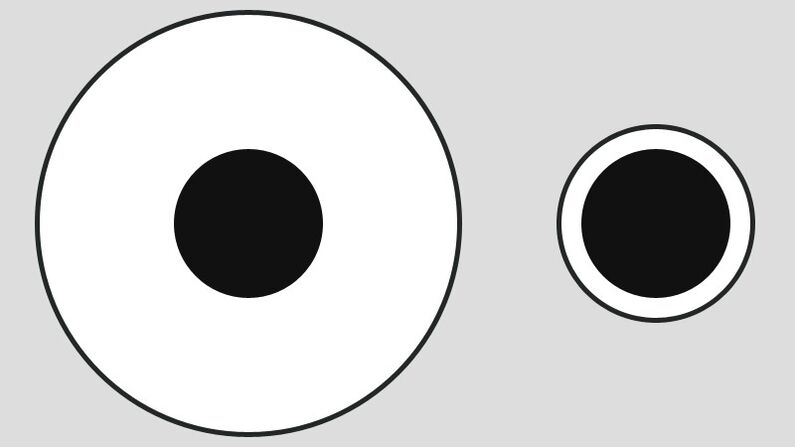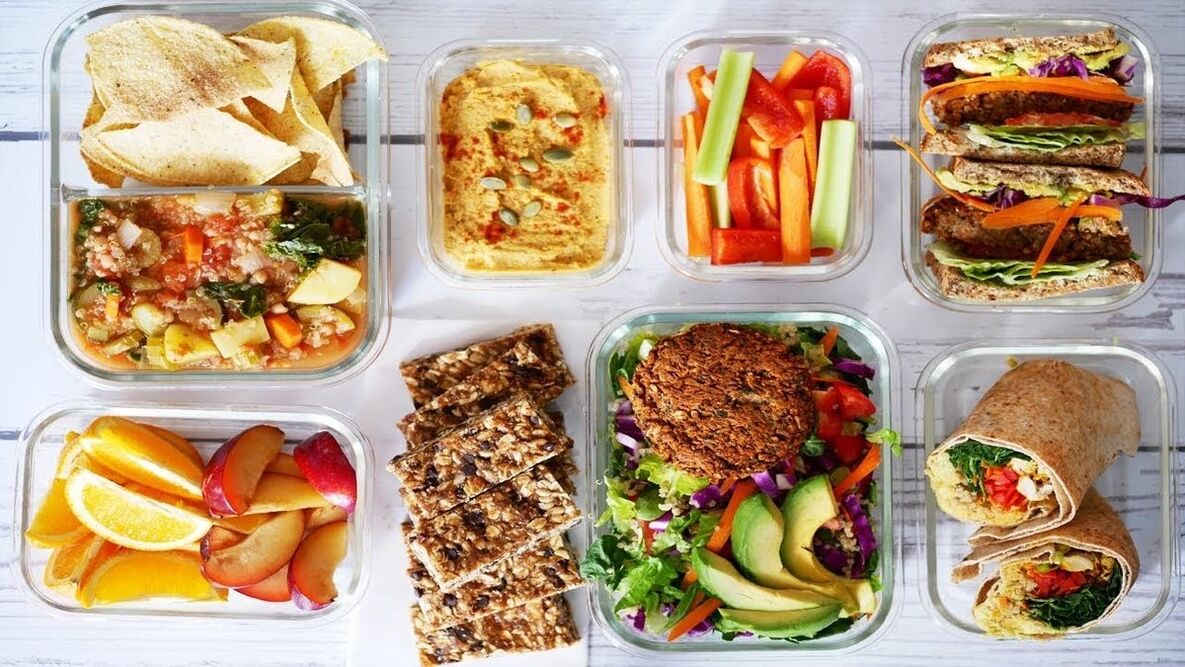
Proper nutrition for weight loss is not about strict restrictions, fasting and giving up your favorite food. First, it’s about taking care of yourself, choosing food, and feeling better and improving your quality of life.
In this case, the principle of nothingness does not work. You don't have to try to change everything in one day and all at once - it usually breaks down and results in overeating. It is best to make small changes step by step. This will help you achieve more results in the long run. If small changes become a habit, add healthy rules.
Remember, the pursuit of good health is a lifelong pursuit. You need to enjoy it, not stress.
Why eat healthy food?
In addition to proper nutrition, which includes fruits, vegetables, whole grains, dairy products, and protein, there are other important benefits to maintaining good health.
Malnutrition is the most common cause of immune deficiency in the world. Researchers have linked many chronic illnesses to poor nutrition. For example, one study involved 38. 5 thousand men and 67 thousand women. When observed for 8-12 years, unhealthy foods contribute to the deterioration of biomarkers, as well as heart disease, hypertension (type 2 diabetes), osteoporosis and some types of cancer.
Evidence suggests that 30-35% of cancer deaths are due to diet, 25-30% to smoking, 15-20% to infectious diseases, and the rest to other factors such as radiation, stress, and physical inactivity. activities, environmental pollution, etc. b.
Malnutrition affects not only physical but also mental health. According to the Mental Health Foundation, two-thirds of people who eat fresh fruit every day do not have mental health problems.
Thus, it is important to ignore the link between good nutrition and healthy weight, reduced risk of chronic diseases, and overall health.
How long does it take to develop eating habits?
Everyone is looking for a quick fix for weight loss these days, and it takes time to change the habits that promote it and work for a long time. This has been confirmed by recent studies.
It has long been believed that 21-28 days is enough for a habit to develop. This statement is primarily related to the activities of a doctor named Maxwell Malz. In the 1950's, he became a plastic surgeon and found that it took patients at least 21 days to learn to look comfortably in the mirror after surgery. In addition, he found that people with amputated legs or arms took the same amount of time to lose the sensation of hallucinations.
As a result, he developed this idea in his 1960 book, Psychocybernetics. This idea was later chosen by many doctors, public figures and coaches. Over the years, the word "minimum" has disappeared, and the 21-day period has become a de facto "scientific" law.
What is new research about?
Philip Lalli is a researcher in health psychology at University College London. In an article published in the European Journal of Social Psychology, Lalley and her think tank set out to find out how long it takes to form a habit.
The study involved 96 people. Each chose a new habit for 12 weeks and reported whether they followed it each day.
Some people have adopted simple rules like "drink a bottle of water during lunch". Others chose challenging tasks, such as running 15 minutes before lunch. After 12 weeks, the researchers analyzed the data to determine how long it took for each person to start a new behavior and move on to it automatically.
On average, it took more than 2 months, or 66 days. However, the time it takes to develop a new habit can vary depending on your behavior, personality, and circumstances. In total, the study lasted 18 to 254 days in humans.
How to start eating right and what habits will help you lose weight?
1. Be calorie deficient
The basic idea is as old as the world -You need to burn more calories than you consume. . .
A negative calorie balance forces the body to use its accumulated reserves to provide the necessary energy. This energy is mainly obtained from the body's stores of carbohydrates and fats.
During the weight loss phase, the daily calorie deficit should be between 300 and 500 kcal.
In addition, it is important to monitor BJU levels (proteins, fats, and carbohydrates).
2. Reduce the amount of fat in your diet
According to the WHO (World Health Organization), preference is given to unsaturated fats (fish, avocados, nuts, etc. ), which reduces the consumption of saturated fats (fatty meats, fats, dates, coconut oil, etc. ), as well as cooked. , smoked, fried foods, convenience foods, pies, chips, crackers, etc. b. y. с. trans trans fats.
Fats should make up no more than 30% of the food consumed during a weight loss diet, more than 10% of which should be saturated, and trans fats should not exceed 1%.
There is no need to completely give up fat when eating. They are needed to provide the body with polyunsaturated fatty acids, namely linoleic and alpha-linolenic acids. They are not produced by the body and are mainly found in vegetable oils and fish.
3. Get enough protein
Protein is the most important building material of the body and should provide 40% of the total energy needs.
When you are trying to lose weight, a protein-rich diet will affect the hunger hormone ghrelin, and you will feel full for a long time. Protein also prevents muscle wasting during the diet. The more muscle mass, the more energy is expended and the higher the calorie requirement.
Animal proteins are more biologically important than plant proteins. However, they contain extra fat and cholesterol, so consumption should be moderate.
Studies show that eating a protein-rich breakfast reduces the need for calories throughout the day.
4. Avoid simple carbohydrates
In general, the carbohydrates in food should be about 30%. They are usually divided into simple and complex. The latter takes longer to process and produces less insulin, which helps you feel fuller and avoid overeating.
Simple carbohydrate foods include sugars, white flour baked goods, jams, soda, juices, and more. For simple carbohydrates, it is better to choose the first half of the day, after sleep, when the blood sugar level is low, glycogen stores are depleted and the body needs to restore energy.
Cereals are best suited for high-carbohydrate foods because of their high mineral and fiber content, which helps the body absorb and digest food.
You can use it as a guideHarvard Nutrition Pyramid. . .
5. If you can't, but you really want to
As you know, "forbidden fruit is sweet". The more you forbid yourself to do something, the more you want it. And if you succumb to temptation, the overwhelming sense of guilt will cause some people to go through the same ordeal.
Therefore, the first step is not to completely eliminate the harmful product, but to reduce the portion size and reduce the frequency of its consumption. Over time, you will begin to feel less craving for these foods.
6. Avoid fatty drinks
Avoid carbonated gases and fruit juices.According to the study, while these beverages are low in nutrients, excessive consumption led Americans to gain 20% of their weight between 1977 and 2007.
A 0. 5 liter bottle of cola contains 240 calories and 65 grams of sugar. It has been shown that people who drink water generally consume an average of 200 calories less per day than those who drink other beverages.
Drink water before meals. According to one study, drinking water half an hour before a meal reduces appetite and increases weight loss by 44% in 3 months.
If you are not ready to immediately give up unhealthy drinks, use a simple method that can deceive the brain.
See the picture below. Which line is bigger: horizontal or vertical?

In fact, both lines are the same length, but our brain overestimates vertical lines. In other words, to transfer this knowledge to the subject under consideration, tall glasses and mugs seem to us larger and more spacious than round and wide glasses.
That way, you can drink 20% less from a long and thin glass than from a small and wide glass.
7. Eliminate alcohol
It is recommended to abstain from alcohol when switching to a healthy diet. Why is this necessary?
- Alcohol affects neurons, stimulates appetite, and increases the risk of eating disorders and eating disorders.
- It alters the secretion and movement of stomach acid, has a negative effect on digestion and leads to metabolic disorders.
- Alcohol slows down the dehydration of the body, so in the morning most people find swelling and excess pounds on the scales.
- Alcohol impairs the body's ability to recover from exercise, which in turn reduces the ability to burn excess calories through exercise.
- Alcohol consumption leads to short and quality sleep, which has a significant effect on hunger and forces people to switch from carbohydrates to fat. Studies show that every 30 minutes of sleep deprivation is equivalent to 83 extra calories throughout the day.
However, it should be noted that in moderate doses, soft drinks do not cause significant harm to the body. 100 ml of dry red wine contains 80 kcal, 100 ml of beer contains 45 kcal. For comparison, vodka - 230 kcal per 100 grams. Therefore, you can drink a glass of dry wine or a glass of beer once a week without compromising weight loss.
8. Eat 5 servings of fruits and vegetables
Fruits provide the body with fiber, minerals, vitamins and phytochemicals. They perform a number of important functions in the body and are important for the health of metabolic processes.
You should eat at least two servings of fruits and three servings of vegetables per day (one serving weighs about 150 g). It should be noted that excessive consumption of fruits is not recommended, because they are high in fructose, low in calories and unlike nutritious vegetables.
9. Pay attention to the speed of food
The speed of the meal affects the size of the portion, as well as the ability to gain weight. Because our brains and intestines are in constant contact, if your brain becomes distracted while eating, you may not notice that you are hungry or full.
Keep in mind that this information takes an average of about 20 minutes, so eating slower can prevent overeating.
In addition, a gradual diet is associated with more careful chewing, which also helps maintain weight. Studies comparing different eating speeds show that fast eaters are 115% more likely to be obese than slow eaters.

10. Redefine your cooking style
Cooking has a direct effect on your health.
Grilling, smoking, frying, deep frying - popular methods of cooking meat and fish. However, using such methods, several potentially toxic compounds (polycyclic and heterocyclic) are formed in the diet, which are associated with various chronic diseases, including cancer and heart disease.
Healthy cooking, baking, steaming, etc. b. They do not promote the formation of these harmful compounds, and thus keep your food healthy.
11. Eat from small plates
The size of the bowl has been shown to affect how much you eat. Portions are placed in large bowls, which is on average 30% more than in standard containers.
The brain perceives the same amount of food on a large and small plate differently, this is called the Delbeuf illusion.

Okay, the part on the left looks a bit off. We hope that additional funds will be required. At the same time, the part that is filled up to the edge of the plate on the right is more perceptible and, accordingly, more satisfying.
12. Reduce spices and flavor enhancers
Salt, spices, store-bought sauces and ketchups should be kept to a minimum. Most of them contain sugar, dyes, preservatives, flavor enhancers and stabilizers. They adversely affect the functioning of the gastrointestinal tract.
WHO recommends drinking more than 5 grams of iodized salt per day (approximately 1 teaspoon). WHO member states aim to reduce global consumption by 30% by 2025, which should prevent hypertension and reduce the risk of heart disease and stroke in adults.
13. Control of emotional nutrition.
Our relationship with food is closely linked to our emotional health. We do not always eat to be hungry. Many turn to food to relieve stress or to cope with negative emotions, such as anxiety, sadness, loneliness, or boredom. But if you learn how to deal with them in a healthy way, you will regain control. Serotonin levels play a key role here.
These are neurotransmitters that help regulate sleep and appetite, control mood, and control pain. Since about 95% of serotonin is produced in the gastrointestinal tract and is lined with hundreds of millions of nerve cells, the internal functioning of the digestive system regulates not only digestion but also emotional management. state.
14. Choose healthy foods
Nutrition is one of the key factors in maintaining a healthy diet and nutrition. If you choose healthy foods rich in protein and nutrients, snacks can be an integral part of weight loss. Some of them can even help you stay full all day and limit your craving for unhealthy foods.
Dried fruits, nuts, hummus and vegetable sticks, natural yogurt, fruits, etc. b. Avoid cookies and sweets, sandwiches and shiny cheeses in your favor.

15. Choose from a supermarket
There is an unspoken rule in supermarkets called the "Outer Ring". As a rule, healthy foods are located around the perimeter - fruits, vegetables, meat, eggs, dairy products, cereals, etc. b. Usually packaged and processed food is placed between rows.
Are processed foods harmful? Scientists are increasingly concluding that processed foods, with all their additives, sugar and fiber deficiencies, can adversely affect the intestinal microbiota and the various bacteria that line its walls. As a result, the risk of developing chronic diseases increases and better conditions are created for overeating.
In one study, the consumption of processed foods was associated with an increase in cardiovascular disease, while in another, the risk of dying from various causes was increased.
In addition, special attention should be paid to the labels indicating the storage conditions and composition of products. Remember that the list of ingredients is given in descending order from bottom to top. The less, the better. Make sure the product does not contain sugar alcohols, sodium glutamate (E621), formaldehyde (E240), trans fats, dyes (E102, E104, E110, E122, E124, E129) and other sweeteners.
16. Do not be distracted while eating
New research suggests that the perception of the sound of food affects eating habits. The study involved two groups that ate sour foods, one with white noise and the other without. As a result, participants who were distracted by the white noise heard less food, which forced them to eat more than those who were suffering.
Another interesting experiment, the results of which were announced in 2016, can lead to "visual starvation" if you promote it through culinary PR or social networks that follow various grocery stores. In other words, even if you do not need food physically, the body sends a signal to the brain using the hunger hormone you want to eat.

To stay in a healthy relationship with food, remember: "Food is not the enemy. "Instead of focusing on what not to eat, think about what you can add to your diet that is healthy, fresh, and tasty. Instead of trying to change everything at once, gradually and without stress, develop new healthy habits.
It is known that a balanced diet is at least 50% of the results in the weight loss process! Without it, even the most competent training will not produce the expected results.














































































